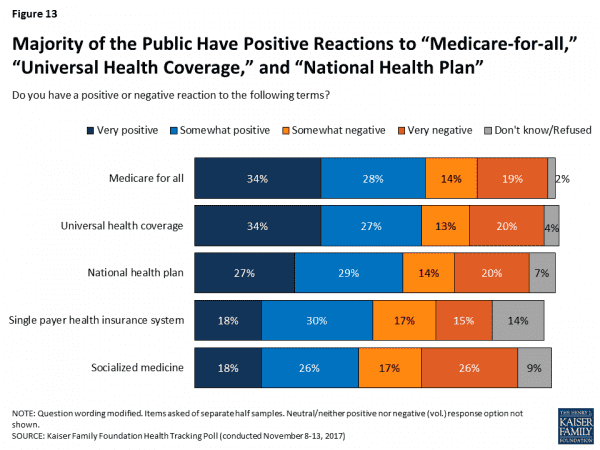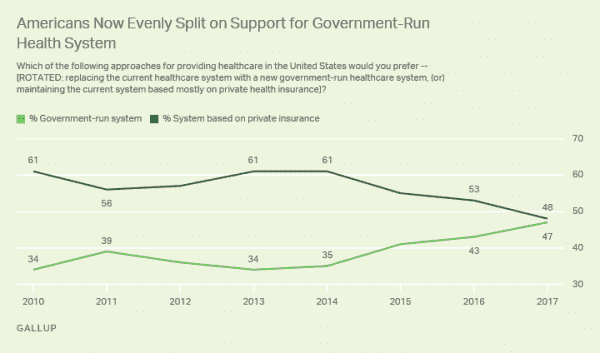
Alexandria Ocasio-Cortez’s victory over Rep. Joe Crowley, No. 4 in House Democratic leadership, in New York’s 14th Congressional District Democratic primary was treated like the political upset of the year.
Maybe it shouldn’t be such a shock that a young woman of color who identifies as a democratic socialist won a Democratic primary against a machine politician who takes millions of dollars from corporate donors, even a 10-term incumbent like Crowley.
Democratic voters, and much of the public, have been telling us for years that they were ready for a genuinely progressive policy agenda to enter the mainstream. Maybe it’s time to listen.
Ocasio-Cortez, a 28-year-old who is a registered member of the Democratic Socialists of America, ticked off every box in the emerging litmus test of the American left:
- Medicare-for-all (and she meant real single-payer health insurance)
- A federal jobs guarantee
- Tuition-free college for all
- Repeal Citizens United by constitutional amendment
- Abolish ICE
- Restore the Glass-Steagall financial regulations
- A Green New Deal to be fossil fuel-free by 2035
- Ban privately owned prisons
It certainly sounds like a left-wing platform — but it also might be pretty popular.
So-called socialist ideas might be more popular than you think
Vox has written about the polling on single-payer health care a lot, and opinions are undoubtedly malleable. But the fact is that “Medicare-for-all,” as a slogan, is overwhelmingly popular. Even single-payer described as such has the support of nearly half of Americans.

Americans are now evenly split on whether they want an insurance system based on private insurance companies or the government.

These other policy proposals haven’t been tested nearly as much, but a 2016 poll found more than 60 percent of Americans support free college tuition for every student, and it was nearly unanimous that students from families with an income below $50,000 should be able to attend college at no cost.
A federal jobs guarantee had the support of 46 percent of Americans, an April poll from Rasmussen Reports (of all places) found. Those polls surveyed the entire US public, so I’m willing to bet in both cases that support is much higher among Democratic voters for the other two major universal program proposals.
Ocasio-Cortez likely benefitted from being a young woman of color running against a 56-year-old white man in a diverse district (40 percent Latino, 32 percent white, 15 percent Asian, and 14 percent black.) But there is progressivism there too: Young people, untainted by years working in politics and the unsavory relationships that develop as a result, may be the best hope of removing undue influence from our politics.
The plain fact is that a Latino woman can be a forceful advocate for people of color in a way that a white man never can — and, given the changing demographics of the party and our country, that’s exactly what Democrats need. Ocasio-Cortez supports a Marshall Plan for Puerto Rico. Representation matters.
But the Ocasio-Cortez agenda didn’t just win in the Bronx and Queens, with their favorable demographics. Dana Balter, running on Medicare-for-all and universal pre-K, prevailed in the New York 24th District — 87 percent white, central New York — over Juanita Perez Williams, the establishment’s handpicked choice in the Democratic primary.
You could also look to the Nebraska 2nd, where single-payer-endorsing Kara Eastman stunned centrist and establishment-backed ex-Rep. Brad Ashford, or the California 45th, where the Democrats in Orange County chose Katie Porter, yet another Medicare-for-all supporter who is endorsed by Elizabeth Warren and beat the California Democratic Party’s preferred candidate.
Democrats need to decide whether to fight or embrace this lefty energy
But even with this enthusiasm and encouraging polling, you can still sense hesitation among national Democrats about this progressive wave. They aren’t sure if they’re going to go all-in for Balter in the New York 24th, for example, especially after actively recruiting Perez Williams to beat her — which seems categorically ridiculous, given the district’s D+3 lean. These more progressive candidates do still have to prove they can win in November in competitive elections. Otherwise, Democrats might fall short of taking back the House.
There is also a quiet campaign underway to redefine Medicare-for-all — the left’s signature issue in America — as something other than single payer. The worry from more moderate-minded Democrats is, of course, that single-payer health care is simply too divisive and too easily demagogued.
But as one progressive activist remarked to me recently: “Why get into the weeds?” People don’t vote on policy minutiae, for better or for worse. They want something to believe in.
Robert Blendon, a Harvard University pollster, told me last year that support for something like Medicare-for-all isn’t just about supporting a national health program. It’s about support for the idea of universal programs, an inherently progressive ideal. Free college and a jobs guarantee meet the same criteria.
“When you say, ‘I’m for that,’ it says that ‘I’m for equity.’ It says, ‘I’m gonna fight back against the corporate establishment,’” he said. “They are not health care voters, but essentially it’s symbolic of these other things that appeal to young liberal people.”
Young people and women are the vanguard for this new brand of progressivism, Blendon and other pollsters told me back then. Which is why Ocasio-Cortez’s win really shouldn’t be such a surprise. Joe Crowley is the Democratic Party’s past. She is its future.
Sourse: vox.com






